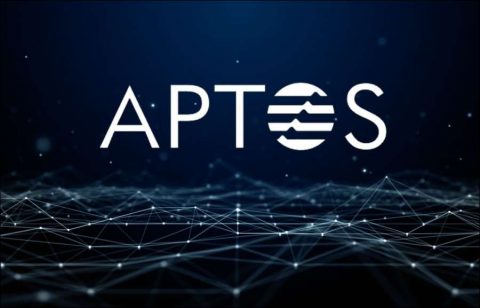
Aptos is a smart contract blockchain that aims to improve the Web3 ecosystem. It promises high transaction speed and low transaction costs at the same time with its unique blockchain architecture. Aptos’ native cryptocurrency, APT token, can be used to pay transaction fees on the network and for staking. APT token was initially offered as 1 billion APT tokens.
Aptos (APT) is a scalable Layer-1 blockchain network project. Founded by former Meta employees, Aptos aims to bring the ideas of decentralization and Web3 to wider audiences.
Designed by Aptos Labs, consisting of more than 300 developers, in a period of three years, this blockchain offers new solutions for smart contracts and decentralized applications. The principles that Aptos follows while doing this are scalability, security, reliability and upgradeability. Aptos, a Proof-of-Stake (PoS) blockchain, stands out as a very advantageous platform for decentralized application developers.
APT token is the native cryptocurrency of the Aptos blockchain network. While the Aptos mainnet went into operation on October 18, 2022, 1 billion APT tokens were initially offered. APT token, which has already been shown among the promising Web3 tokens, can be staked to become a validator on the network or used for transaction fees on the network.
All about Aptos (APT) coin
Aptos was founded by Avery Ching and Mo Shaik, who previously worked on Meta’s Diem blockchain project. Ching and Shaik adapted the “parallel execution” technique to Aptos, the main lines of which were created during the Diem days and aimed to speed up transactions on the network while keeping their costs low. The Aptos mainnet was opened on October 18, 2022.
What makes the Aptos project special?
Aptos is notable for using Move, a Rust-based programming language developed independently by Meta, and basic elements of the Diem blockchain. What makes Aptos stand out the most is that it promises high processing speed for both developers and end users.
The Aptos network uses a parallel execution engine (Block-STM). Thanks to this technology, Aptos can perform more than 130 thousand transactions per second. Thanks to the parallel execution engine, transaction speed on the Aptos network increases while costs remain low.
Most blockchains either execute smart contracts sequentially or require a massive parallel workload, which demands a lot of power for better performance. Aptos is different from other blockchains because a single failed transaction does not stop the entire chain. Instead, all transactions are processed simultaneously and verified later. Failed transactions are aborted and re-executed thanks to STM (software transaction memory) libraries that detect and manage conflicts.
As a result, Aptos differs from other blockchains with this structure and manages to increase the output capacity of the entire blockchain while not incurring additional costs to users or developers.
APT token whitepaper
You can access the whitepaper of the Aptos (APT) project by clicking here. In the APT token whitepaper, it is underlined that the Aptos blockchain promises low costs while offering high transaction speed for executing smart contracts.
Visits: 31


